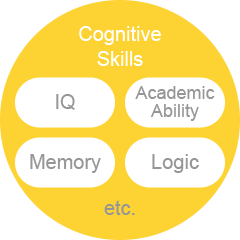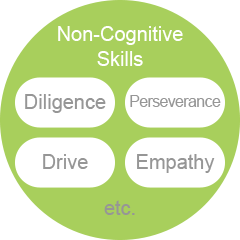Sports School Management
- Home>
- Business / SPORTS>
- Sports Schools>
- Sports School Management
Sports Beyond Winning
Transforming sports instruction environments promotes
children’s healthy growth and a better society.
FUN OF SPORTS
Our Motto:
The Joy of Playing Sports
The growing popularity of video games and smartphones in recent years has led to fewer children engaging in physical exercise, resulting in a decline in physical fitness that has become a social concern.
Meanwhile, the sports industry continues to face issues such as coaching that focuses solely on winning and instances of harassment, including excessive training.
At Leifras, we return to the fundamentals, operating schools that are enjoyable for children who are new to sports or may even struggle with them.
Developed at Our Schools
Non-cognitive skills refer to abilities such as diligence, drive, perseverance, and empathy, which differ from cognitive skills like academic ability or IQ. Committing to sports activities over the long term fosters perseverance, while repeated practice encourages self-reflection and dedication. In team sports, children learn to cooperate with others, allowing them to actively participate in a fun environment that helps cultivate empathy for their teammates and opponents.
Developing non-cognitive skills during childhood is essential for shaping future leaders who can make a positive impact on society.
by Professional Instructors
At our schools, under our philosophy of “Strengthening the Heart,” we help children develop essential skills for success in society.
Our professional instructors, who have been rigorously trained in safety, mental well-being, and technical skills, provide personalized coaching that emphasizes “recognition, praise, encouragement, and inspiration.” Instead of giving children direct answers or imposing our views, we foster independent thinking and actions by asking questions that help them discover their own ideas.
Sports Environments
Our school instructors have completed life-saving courses and regularly participate in safety training.
They also implement measures to prevent heat stroke and are knowledgeable of the locations of AEDs, evacuation areas, and nearby hospitals to ensure that we can respond appropriately in an emergency.
EXPERIENCE ACTIVITIES Experience-Based Activities for Children’s Growth
Here is an overview of our teaching philosophy, which is focused on helping children reach their full potential.

ACTIVITIES 01 Training Camps
Camps are held three times a year, in spring, summer, and winter, to foster a sense of independence and personal responsibility.

ACTIVITIES 02 Nature Experiences
Through various hands-on activities in areas such as agriculture, forestry, fisheries, nature, traditions, and professions, children will make new discoveries, nurture their curiosity, experience awe, and develop a sense of gratitude—leading to the growth of a stronger character.

ACTIVITIES 03 Beautification Efforts
Before or after school sessions, we pick up litter as part of our environmental education, aimed at raising environmental awareness.
Non-cognitive
skills
What Are Non-Cognitive Skills?
Leifras Sports School has always prioritized the emotional growth of children.
This aspect of development has recently been gaining attention as “non-cognitive skills.”
We were featured in an interview
as a sports school fostering non-cognitive skills!
What are non-cognitive skills?
Unlike IQ, academic ability, memory, or logic, these are qualities that can’t be measured in numbers, such as diligence, drive, perseverance, and empathy.
The state of these non-cognitive skills is known to impact cognitive abilities; however, there is no evidence to suggest that the reverse is true.


Recent studies have shown that non-cognitive skills
support social and economic success.
Perseverance and diligence (grit and sincerity) are said to be some of the most important non-cognitive skills for future success.
A study conducted by the Institute of Social Science at The University of Tokyo found a significant difference in average annual income between men with the highest levels of sincerity and those with the lowest.
The difference in average income was 1.98 million yen.


Featuring Best-Selling Author Makiko Nakamuro
Associate Professor at the Faculty of Policy Management, Keio University
After graduating from the Faculty of Environment and Information Studies at Keio University, she worked at the Bank of Japan, the World Bank, and Tohoku University before assuming her current position.
She earned an MPA from the School of International and Public Affairs at Columbia University and a Ph.D. in education economics at Columbia University.
She specializes in education economics.
She is also a member of the Industrial Structure Council, an expert member of the Administrative Reform Council (Expenditure Reform WG), and a member of the Super Science High School Support Promotion Committee.
Her works include The Economics of Academic Ability (Discover 21), which won second place in the Business Book Award 2016 and has sold over 300,000 copies, and The Economics of Cause and Effect (co-authored, Diamond), which was ranked #1 in Diamond Weekly’s Best Economic Books of 2017.
Member Testimonials
Here are some testimonials from actual members who have joined Leifras Sports School.
Teachers are attentive to children’s feelings
more
Teachers are attentive to children’s feelings
Liberta Soccer School, Parent/Guardian of R
My son is six years old and seemed to lack self-confidence, so I wanted to get him involved in something that could help boost his self-esteem.
Since he played soccer at preschool and showed an interest in it, I was initially considering putting him in a club team.
But he doesn’t seem to be the type to grow under strict guidance, so I decided to look for a place that would focus on finding his strengths while also teaching him important values like respect.
After some research, I found Liberta, and after enrolling my son, I immediately felt it was a good decision.
The teachers praise him for even little things, which has really helped boost his confidence.
Great for first-time extracurricular activities
more
Great for first-time extracurricular activities
Baseball School Porte, Parent/Guardian of R
I initially thought that baseball wasn’t suitable for young children, but the school uses soft balls that aren’t intimidating and bats designed for them, so I felt comfortable sending my preschool-aged son to practice.
He got to participate with older kids, so now, as an older student himself, he naturally takes on the role of looking after the younger ones.
He learned this naturally through experience, and I’m grateful for the environment that provides him with such opportunities.
Teaching the importance of gratitude
more
Teaching the importance of gratitude
Basketball School Heartz, Parent/Guardian of K
I still remember the sparkle in my son’s eyes after his trial session at the school.
Heartz was where he first discovered basketball, and with encouragement from the teachers, he now dreams of becoming a professional basketball player in the future. As a parent, it’s very appealing that, in addition to getting to exercise, my son is learning to appreciate the opportunity to participate in extracurricular activities.
He seems to be developing a sense of teamwork and responsibility through practice and training camps, and I can’t wait to see how he continues to grow.
Grateful for the teachers’ attentive guidance
more
Grateful for the teachers’ attentive guidance
Sports School of the Variety JJMIX, Parent/Guardian of R
This was my daughter’s first extracurricular activity, and as parents, we had some worries.
But after seeing how the teachers interacted, praised, and guided the children during the school trial lesson, we thought it would be a good fit.
Since she enrolled, I’ve noticed that the teachers are attentive to small details that might otherwise be overlooked, finding the strengths of each child, and praising them to encourage growth. My daughter has learned to respond confidently and greet others, and has also gained the confidence to join in with new friends. Above all, she has developed a love for running and exercising.
I believe she’s growing significantly through experiences that we wouldn’t have been able to provide on our own.